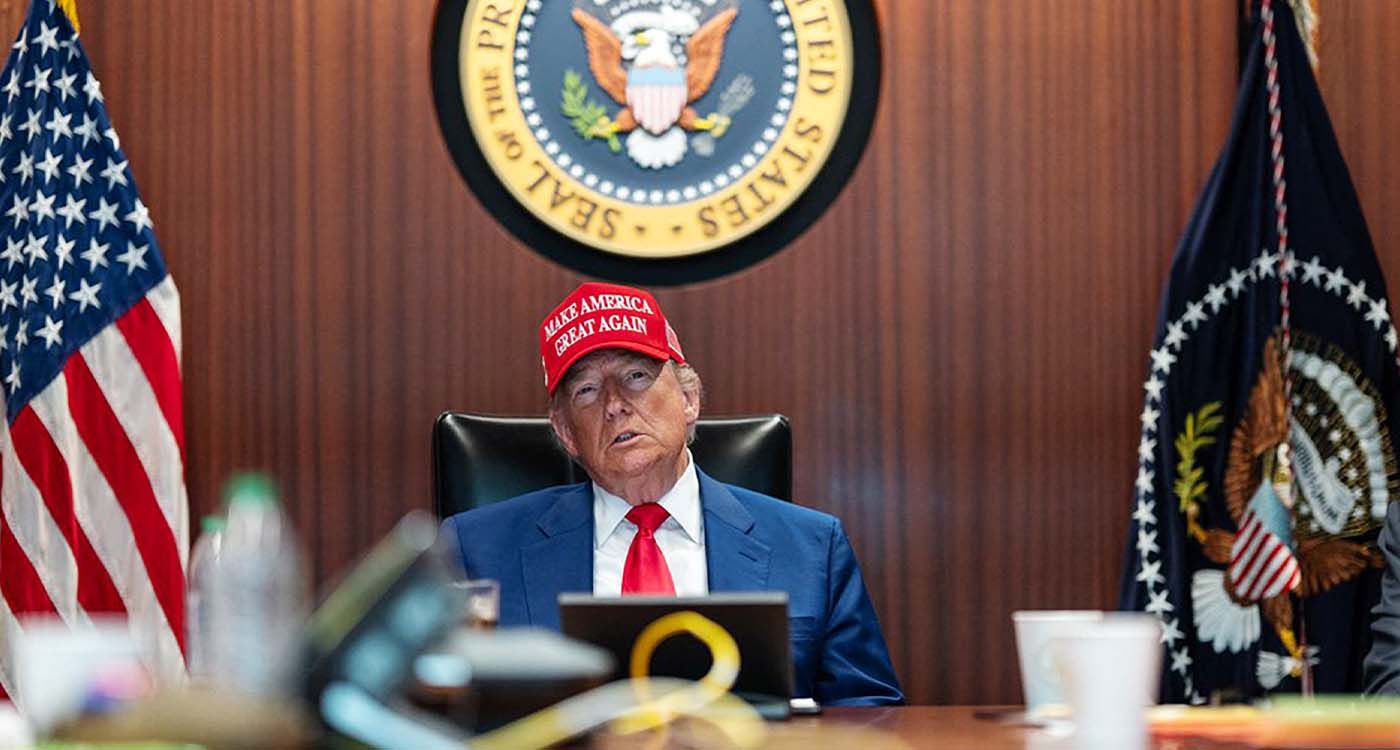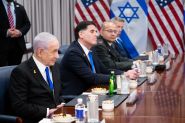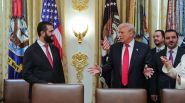- Home
- Middle East
- Trump's New Motto: Make Iran Great Again!

© WHITE HOUSE / AFP
In a significant escalation of military tensions in the Middle East, President Donald Trump recently authorized US airstrikes on three key Iranian nuclear facilities, including the heavily fortified Fordow site. Following the military action, Trump expressed Sunday his thoughts on Truth Social, stating, "It's not politically correct to use the term 'Regime Change,' but if the current Iranian regime is unable to MAKE IRAN GREAT AGAIN, why wouldn't there be a regime change???" These remarks marked the first occasion during the ongoing crisis that Trump publicly floated the idea of regime change. However, he stopped short of explicitly calling for the US to overthrow the Iranian government.
Trump's statements diverge sharply from the official narrative upheld by members of his own administration. Vice President JD Vance and Defense Secretary Pete Hegseth stressed that the strikes were narrowly targeted, aimed solely at dismantling Iran's nuclear program without intentions of toppling the Iranian government. Echoing this sentiment, Secretary of State Marco Rubio clarified that the US objective focused on eliminating nuclear capabilities rather than regime change itself.
Trump's comments sparked insightful discussions within his administration and inspired a diverse range of responses among his supporters. While many embraced the targeted nature of the strikes, there are significant concerns regarding the risk of a protracted conflict.
Internationally, the airstrikes triggered immediate and intense reactions. Iranian officials consider the strikes a "serious breach" of international law and the Nuclear Non-Proliferation Treaty. They vowed to retaliate, warning that the US had "crossed a very big red line."
Israeli Prime Minister Benjamin Netanyahu remarked that regime change in Iran could be a potential outcome of this conflict, leaving open the political endgame.
In response to these developments, major US cities, including New York, Washington, and Los Angeles, heightened security measures at religious, cultural, and diplomatic sites despite the absence of credible domestic threats thus far.
Assessments of the Airstrikes
Preliminary assessments of the airstrikes suggest they inflicted substantial damage to Fordow and Natanz, both critical underground enrichment sites. Analysts believe that the strikes may have delayed Iran's nuclear capabilities by several years. One expert remarked, "While Iran retains the capacity to harm the US and Israel, the real question is whether Israel will continue air operations targeting missile programs."
Farzin Nadimi, Senior Fellow at The Washington Institute, conveyed to "This is Beirut" that while Israel has numerous remaining targets, including missile launchers, "the most critical objectives may have already been accomplished." However, the situation could be further complicated by the possibility of Iran relocating some uranium stockpiles to undisclosed sites, potentially out of range of monitoring by the International Atomic Energy Agency (IAEA). Nadimi emphasized, "Ending Iran's nuclear capabilities requires a verifiable commitment to abandon enrichment." He cautioned, "If Iran's nuclear program hasn't been completely dismantled, this could strengthen Tehran's resolve to pursue nuclear weapons." He elaborated that given the significant investments Iran has made in its nuclear capabilities, "seeking nuclear weapons becomes a priority."
Regarding the internal challenges Iran may face following the airstrikes, Nadimi pointed out the necessity for Tehran to safeguard its program from potential preemptive strikes. "Israeli intelligence has a firm foothold within Iranian security forces," he noted, adding that this could complicate Iran's strategic calculations.
To mitigate risks, Nadimi suggested that Iran might consider establishing heavily fortified secret facilities to protect its nuclear ambitions. The future of Iran's nuclear program, he noted, could also hinge on the succession of Supreme Leader Ali Khamenei. If a new leader is less committed to the nuclear program, it could significantly impact the future of Iran's nuclear ambitions, underscoring the interplay of internal politics and external pressures.
As global leaders closely monitor the ongoing developments, the historical context weighs heavily on the current US administration. Since the presidency of Bill Clinton, all US presidents have grappled with the complexities of dealing with the Iranian nuclear program. Only Donald Trump, however, has opted for military action, a decision that is destined to be a defining aspect of his legacy.
Read more





Comments